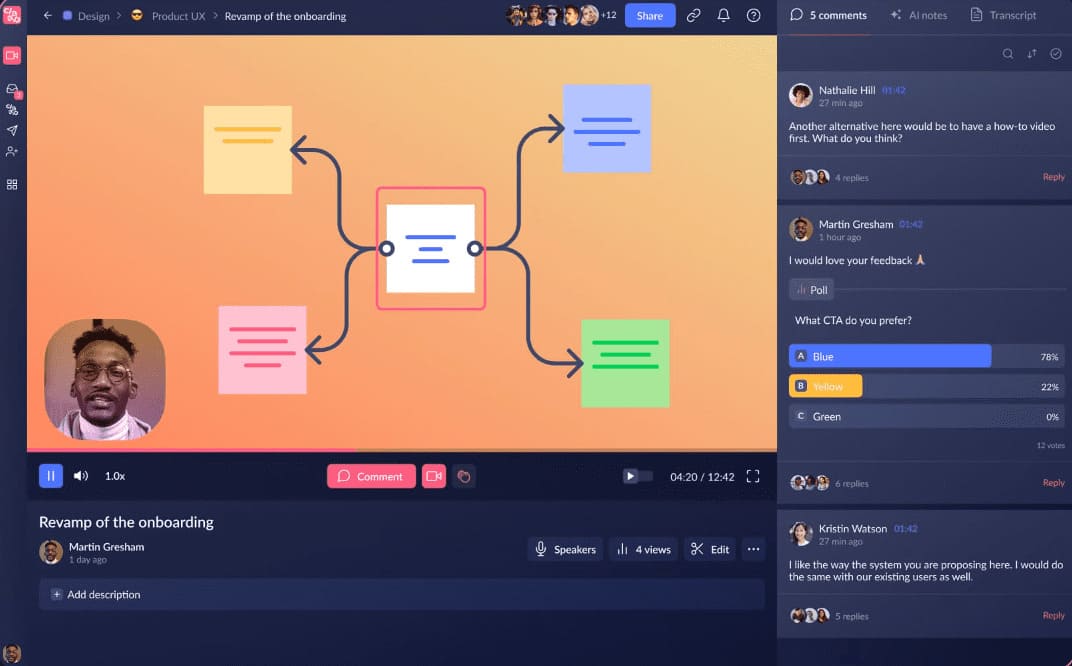What to look for in a Tech Lead candidate?
What is a Tech Lead?
The role of a Technical Leader (Tech Lead) requires a blend of technical expertise and leadership abilities. Basically, the Tech Lead is responsible for:
- Development Team management: The Tech Lead leads the Tech Team. He/she is in charge of delegating the work and guiding the team through technical issues and challenges.
- Technical architecture of projects: The Tech Lead is responsible for designing and reviewing the technical architecture of projects.
- Communication to other stakeholders: The Tech Lead plays a pivotal role between the Tech team and other teams. He/She needs to be able to explain technical concepts to non-technical collaborators.
A good Tech Lead is essential for the productivity of your Tech team. But how to find the right person for the job? Let’s find out together!
How to find the best Tech Lead candidate?

Now, you know what a Tech Lead is responsible for. But to judge a candidate, you need a bit more than that. Let’s look at the qualities and skills you’ll be looking for to find the ideal fit for your company:
- Leadership and management skills: As the Tech Lead will lead the Tech team, the candidate should demonstrate an ability to lead a team properly. A strong candidate will show he/she is able to delegate tasks efficiently, help his/her teammates develop their skills and motivate them when needed.
- Problem-solving and technical skills: The Tech Lead needs to be able to review the code produced by his/her teammates, but also troubleshoot technical issues and provide solutions. The ideal candidate will have strong problem-solving and coding skills.
- Communication skills: A good candidate should be able to demystify technical and complex concepts to make them understandable to anyone.
Maybe you didn’t know but we were already working on the interview template there! Now you know what to look for in a candidate, and so you know what your template should be assessing. Well let’s go to the second step together: actually building the template!
How to craft your own Tech Lead interview template

Why do you need a Tech Lead interview template?
Using an interview template will assist you in several aspects:
- Stay organized: Using an interview template gives you a complete overview of the interview in a document. Having your pre-selected questions on paper allows you to guide the interview in the direction you want. This prevents you going off track and overlooking important questions!
- Guarantee fair conditions to candidates: An interview template allows you to have standardized interviews (you just need to use the same template for all the candidates). This way, you can stay fair and objective when judging the candidates. You can even use an interview scorecard for more standardized
- Keep track of the interview: Your interview template is a framework for your interview notes. During the interview, you take notes (answers of the candidate, feedback..) and you can go back to them whenever you want. But the most efficient way to keep track of your interviews is still using Claap to automatically record and transcribe your interviews.
Building your Tech Lead interview template

Now let’s jump to the main topic: building your Tech Lead interview template. I recommend starting from a general interview template. You can find one here. If you want the most standardized interviews, you can start from an interview scorecard template.
Now you need to fill your template with the questions you want to ask the candidates. Let’s see what questions you could ask to a Tech Lead candidate.
28 Tech Lead interview questions

General questions:
- Could you go through your resume and detail your tech background?
- Why are you interested in this position?
- Give me a piece of feedback you’ve received from your previous employer.
- How did you decide to get into programming?
- What do you like about programming?
- What is your ideal work environment?
Leadership and management skills:
- Tell me about the teams you managed in your previous experiences.
- What makes you a good leader?
- Can you share an example of a challenging situation with your team and how you navigated through it as a leader?
- How do you motivate your teams?
- How would you describe your management style?
- How would you assess the success of your teams?
- How would you delegate tasks among your team?
- What strategies do you use to promote continuous learning and skill development within your team?
Problem-solving and technical skills:
- How do you conduct code reviews to ensure high-quality code?
- Can you share an example where your code review process improved code quality?
- Describe a challenging technical issue you resolved. How did you troubleshoot and address it?
- How do you prioritize and address technical issues under time constraints
- How do you stay updated on emerging technologies to enhance your problem-solving skills?
- Share a situation where you had to make a trade-off between quick and comprehensive solutions.
- Walk us through your approach to writing clean and maintainable code.
- Can you share a project where your coding skills contributed to success?
Communication skills:
- How do you handle conflicts or disagreements within your team?
- Describe a situation where you successfully collaborated with a non-technical team to achieve a common goal. How did you bridge the communication gap?
- In what ways do you tailor your communication style when interacting with different stakeholders, both internal and external?
- How do you approach explaining complex technical concepts to non-technical stakeholders?
- How do you ensure that your audience comprehends the technical information you convey?
- Can you provide an example of a time when you successfully made a complex technical concept understandable to a non-technical audience?
Sample answers

- What strategies do you use to promote continuous learning and skill development within your team?
Sample Answer: "To encourage continuous learning and skill development within my team, I ask my teammates to take time to send a weekly mail to the team, summarizing what they’ve recently explored and found interesting. I also share and encourage participation in relevant workshops, conferences, and online courses. Finally, during the team meetings, I dedicate a section to emerging technologies and industry trends during which we can talk about any relevant topic."
- How do you conduct code reviews to ensure high-quality code?
Sample Answer: "When I conduct code reviews, I look for 3 things: readability, maintainability, and efficiency. I also pay attention to potential issues such as security vulnerabilities and performance bottlenecks. I always provide constructive feedback to help my teammates progress and adopt best practices."
- How do you handle conflicts or disagreements within your team?
Sample Answer: "When a conflict arises within the team, I take a proactive approach. I like to start with an open and honest discussion with the people concerned to get their perspectives and understand the causes of the conflict. Then, I work collaboratively with them to find a resolution that aligns with the team's goals. If needed, I bring in a neutral mediator to ensure a fair resolution."
- How do you approach explaining complex technical concepts to non-technical stakeholders?
Sample Answer: "Communicating complex technical concepts to non-technical stakeholders is not an easy task. I avoid jargon and use analogies or metaphors to illustrate concepts. I also like to use diagrams and charts, which I find great for simplifying details. Finally, I strongly encourage my interlocutors to ask as many questions as possible to ensure they understand everything."
How using Claap will help you optimize your interview process

Earlier, I told you Claap was the best way to keep track of your meetings. But it’s more than that. Claap is an audio and video transcription tool that you need to integrate to your interview process. And here are the 4 reasons why.
Claap records your interviews
Let’s start with what I already mentioned: the meeting recording feature. Claap records your Zoom and Microsoft Teams meetings. Why limit yourself to notes when you can have the full recording of the interview?
And it makes your interview process way more efficient : In case of doubt about a candidate's performance: you can review it as much as you want. You’re sure to be as objective as possible!
Claap is your personal note-taker
Claap is an automatic notetaker. It captures the audio of your interview and transcribes it for you. You don’t even have to re-watch the interview, you can be even more efficient by reading the transcript.
And of course, you’ll not have to rewrite your notes in your template. Claap has powerful AI features that will summarize the notes taken, but also adapt them to your template! You have nothing else to do but to focus on the candidate you are interviewing!

Claap makes your interview process more collaborative
Ok let’s summarize, Claap makes your interview process more efficient by recording your interviews and taking notes for you. But how could your interview process be even more efficient? By dividing the work! Claap allows you to share your recordings in one click. And it changes a lot of things.
With Claap’s workspaces, you can easily make your recordings available to the people you want. Then, they can ask questions or give feedback, even on a specific part of the screen at a certain moment of the interview, thanks to Claap’s advanced collaborative features!
Claap is a better place to store your notes than your drawer
Claap does everything for you. Even archiving your past interview. And it does it well. With its video library, Claap stores all your past interview recordings and transcriptions. And if you need to go back to one of them, no need to look through your entire library! Claap has powerful search features that enable you to find a document using one keyword only!

Why wait? Experience the ease firsthand. Join Claap today and see the impact for yourself (free plan, no credit card necessary).
FAQ






